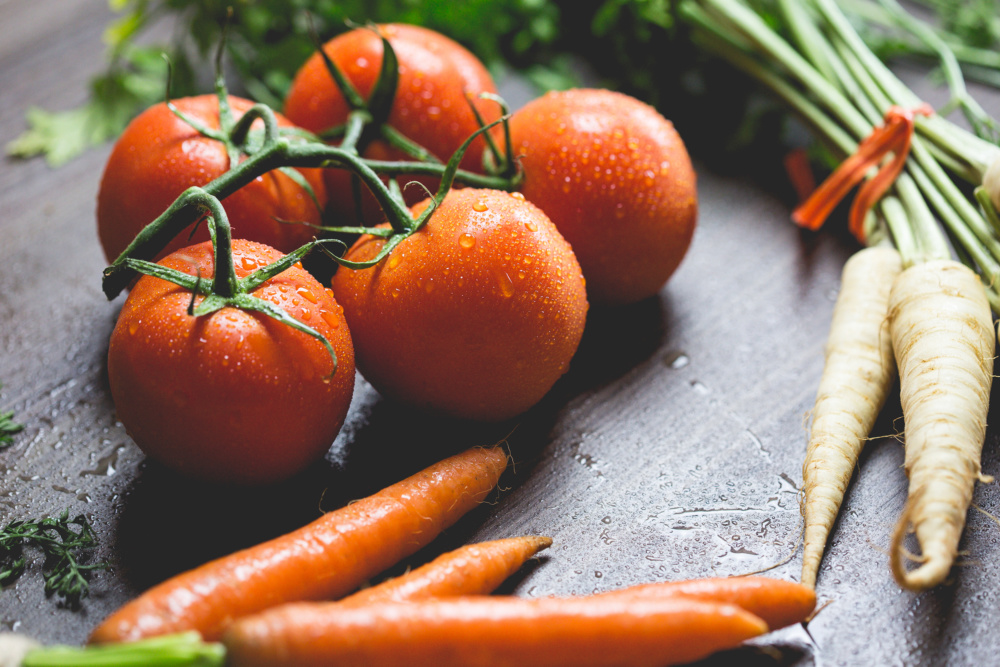6 Do’s & Don’ts: Diet Tips for Pregnant Women
By: Ryan Varela
You should be mindful of what you eat during pregnancy. During this time, make sure you include the best and healthiest foods in your diet, so that these foods can keep you healthy and boost your baby’s growth. When you eat the right foods, you will be energized to face all the strains and stress that comes with pregnancy and you won’t suffer any critical illness. In this guide, we will teach you diet tips for pregnant women. Here are the tips:
6 Lists of Foods To Eat During Pregnancy:
Milk and Dairy Products
Taking enough calcium during pregnancy is good for your health. It aids the overall skeletal growth of your baby, and strengthens your teeth and bones.
So, make sure you have a glass of milk daily and consume dairy products like cottage cheese, cheese, buttermilk, yogurt and so on. These calcium supplements will enable you to live healthier and stronger.
Spinach and Fenugreek
There are multiple reasons to consume leafy green vegetables like spinach and fenugreek daily. Spinach and fenugreek are powerful sources of folate or folic acid. Your unborn baby needs folic acid as a vital nutrient to be healthy.
It saves them from experiencing birth defects like congenital disorder, spina bifida, and aids in their fetal brain development. Folic acid also minimizes the risk of pre-term labor and preeclampsia in the mother.
Besides, spinach and fenugreek have traces of calcium, minerals and vital vitamins that can be great for your health.
Broccoli
A few decades ago, many people saw broccoli as an exotic commodity. However, today you can find broccoli in almost all of the leading superstores.
If you are pregnant, then consider including it in your shopping cart. It is packed with great amounts of potassium, manganese, and calcium and aids towards developing stronger bones in the fetus.
Pulses and Legumes
These are the best sources of plant-based fiber, proteins and other nutrients like folate, iron and zinc. Pulses and legumes helps both in the development of the liver and brain of the baby and the mother. Every pregnant woman is advised to include them in her diet so that she can reap their nutritional benefits.
Fruits and Vegetables
Of course, you will never go wrong by consuming fruits and vegetables. Please don’t limit your options by eating only staple fruits like pears, bananas, and apples. Instead, go for more colorful varieties.
During pregnancy, you need to eat foods rich in antioxidants such as grapes, strawberries, and musk melons. Absorption of iron, berries, and vitamin C will help in relieving constipation and preventing birth defects.
When it comes to absorption of vegetables, make sure you shop for varieties of vegetables such as tomatoes, zucchini, eggplants, pumpkins, bell peppers, cauliflower, etc. They contain vitamins, minerals, and antioxidants that will make your baby very healthy.
Breakfast Cereals and Grains
They are amazing sources of fiber and carbohydrate which act as a storehouse of energy. Constipation is a common occurrence during pregnancy, but fiber in breakfast cereals and grains will enable you to fight it. Including breakfast cereals and grains in your daily diet will make sure you give all the cells in your body enough energy to function properly.
6 Lists of Foods You Should Avoid During Pregnancy:
Fish
Fish such as tilefish, king mackerel, swordfish, and shark have high mercury levels. Therefore, you shouldn’t be eating them. Mercury is an element found in lakes, streams, and oceans. Research shows that they are neurotoxins and therefore linked to brain damage and could lead to delays in the delivery of your baby.
Alternatively, you can choose the following fish; catfish, salmon, canned light tuna, and codfish because of their low mercury levels.
If you must eat fish, choose the ones rich with omega-3 fatty acids, low saturated fats, low in mercury and with high nutrients. This will aid in proper development of the baby’s heart and brain. You are advised to consult with your doctor to know the right types of fish you can eat.
Soft Cheese
Don’t eat raw milk or unpasteurized soft cheese. Almost all the cheese in the U.S is pasteurized. Before you eat, make sure you check the label and that it clearly shows that it is in fact pasteurized. Also, do not eat uncooked foods produced from unpasteurized or raw milk.
Foods That Cause Allergies
Pregnant women are advised to avoid eating certain foods. Eating foods you and/ or your husband are allergic to could make your baby develop allergies to those foods. Also, if you are having allergic conditions such as eczema or asthma, or allergenic rhinitis, then you should avoid foods that you are allergic to.
Furthermore, during pregnancy, you are strongly advised by health experts to avoid smoking and drinking alcohol. You should get enough sunlight, but not too much, engage in regular exercises, and maintain a healthy weight.
Raw Sprouts
Pregnant women are advised to avoid eating undercooked sprouts or raw sprouts such as mung bean, clover, alfalfa, and radish. If you really want to eat sprouts, then you must cook them thoroughly. The Food and Drug Administration suggests that it is unsafe for pregnant women to eat raw sprouts.
Unwashed Fruits and Vegetables
Pregnant women should not eat unwashed fruits and vegetables. It is healthy to eat fruits and vegetables during pregnancy, but you must wash them thoroughly. Just think about how many people that may have touched them before you purchase the fruits and vegetables.
You need to be vigilant of what you eat during this time. Forgetting to wash your fruits and vegetables can make your baby sick.
Unpasteurized Juices and Excess Caffeine
During pregnancy, you should avoid eating unpasteurized juices and excess caffeine because they contain a wide range of harmful bacteria such as campylobacter, salmonella, listeria etc. This can lead to a series of bacterial infections. These infections can have life-threatening consequences for your baby.
Pasteurization is very important; it is the most effective way of killing all harmful bacteria without changing the nutritional value of the fruit juices. You are advised to eat only pasteurized cheese, milk and juices.
Caffeine on the other hand, is the most effective psychoactive substance, which is mainly found in cocoa, soft drinks, tea, coffee etc. During pregnancy, you are advised to limit your intake of caffeine to about 200 mg per day.
Your body absorbs caffeine very quickly and it passes into the fetus and placenta. You are advised to minimize your intake of caffeine because this may lead to low birth weight and restrict fetal growth of your baby.
Author Bio:
Ryan Varela is the CEO of Boost Health Insurance which provides customized and affordable health care plans for thousands of customers across the United States. Ryan has nearly a decade of experience in the healthcare industry and continues to serve the greater need to educate and deliver access to affordable options to those who need health care the most.







Recent Comments